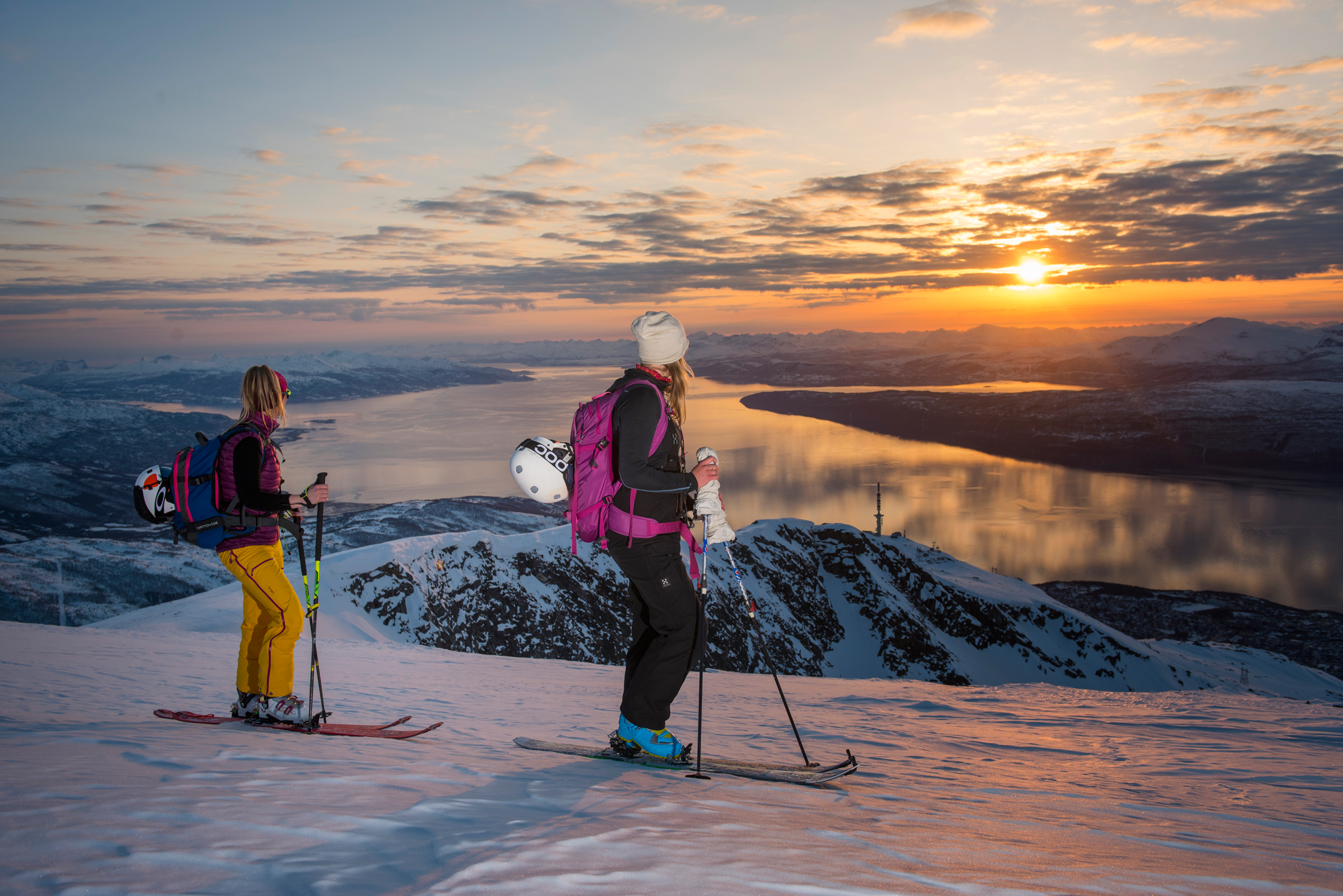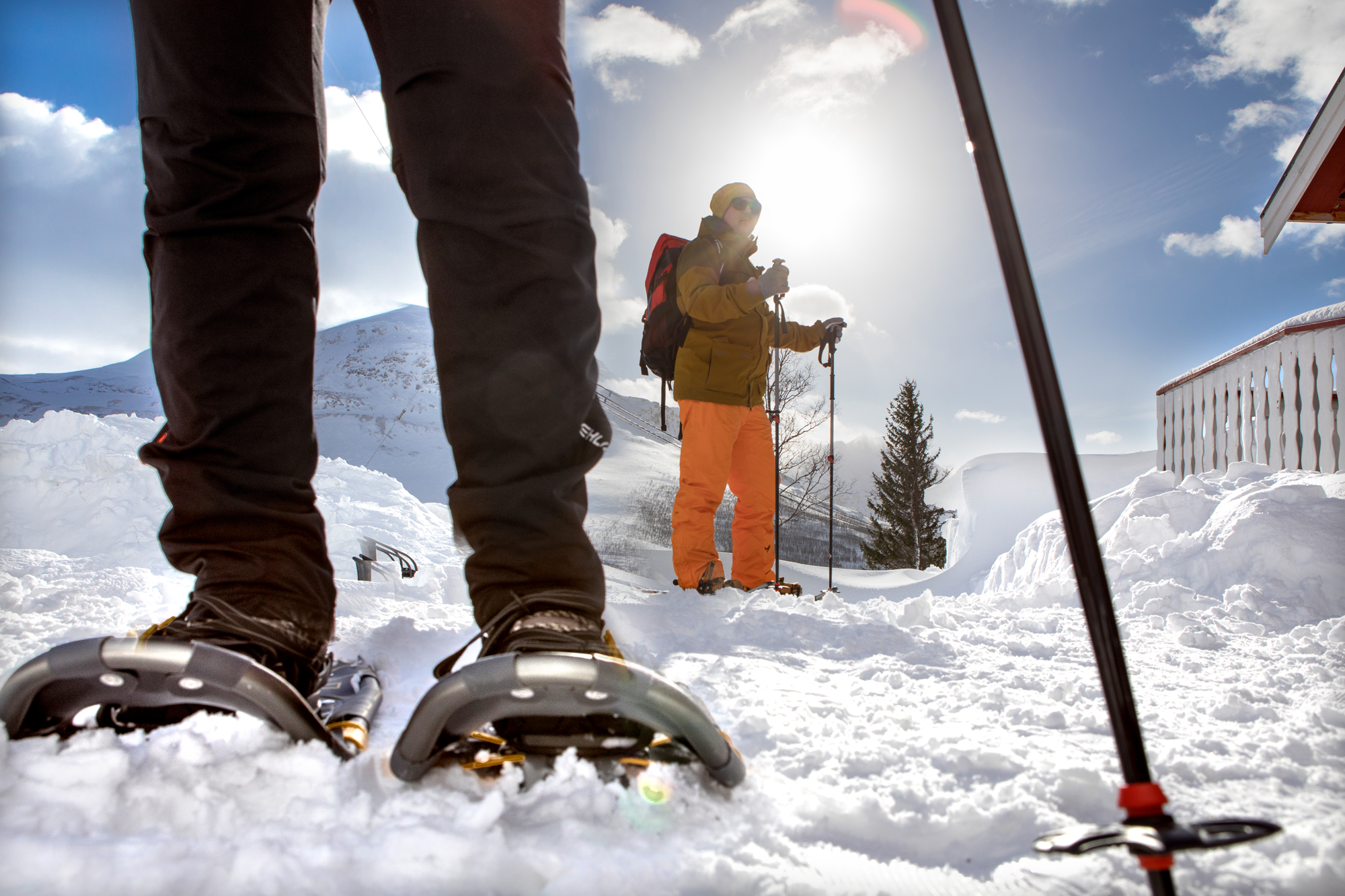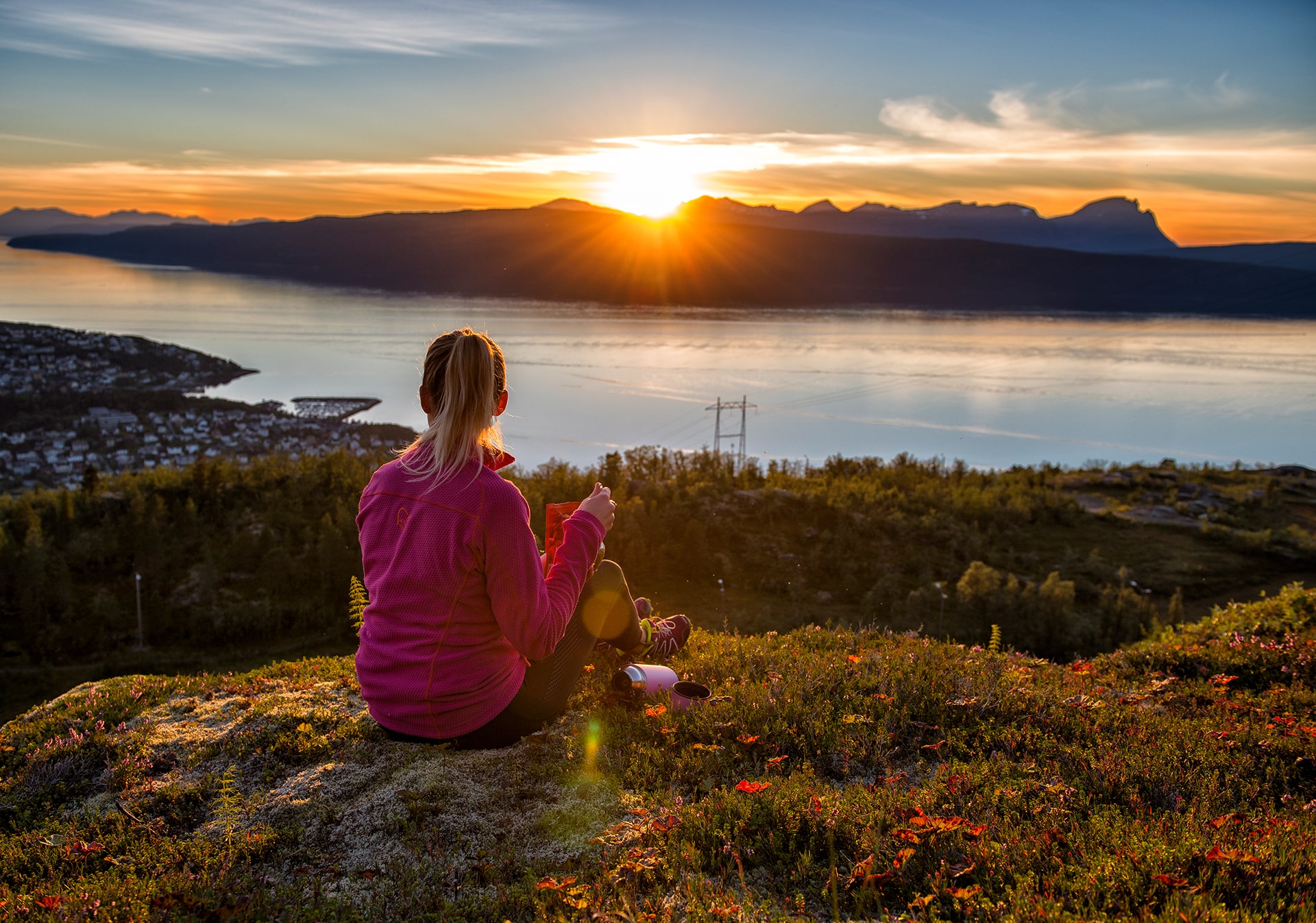How to Dress for the Arctic
In Norway, we like to say: “There’s no such thing as bad weather, only bad clothing.” And up here in Northern Norway, that couldn’t be more true. The key to staying warm and comfortable is layering, and wool is your best friend.
Follow our simple tips for how to dress in Arctic conditions, and you'll be ready to enjoy the outdoors no matter the season. Whether you're chasing the Northern Lights or hiking under the Midnight Sun, dressing right means you’ll stay cozy all year round.

Norwegians know that wool is the best material for staying warm in winter, far superior to cotton. It insulates effectively even when wet, making it a common choice for multiple layers of clothing.
Rune Dahl
Autumn & Winter
To feel warm and comfortable in the winter time its important do dress layer-by-layer!
First layer
The first layer next to your skin should be long-sleeved and long-leg thermal underwear and wool socks. It is best to avoid cotton underwear as it quickly becomes wet and sweaty, and then you will get cold. Important: We recommend that you wear 100% wool next to your skin.
Second layer
The second layer should consist of a long-sleeved, wool or fleece sweater and trousers. Thickness is depending on temperature and conditions.
Third layer
The third layer should be a jacket and pants that is both water and windproof. It can be insulated or a thin shell depending on conditions, activity and what your first two layers consists of. For extremely low temperatures, cotton without a waterproof membrane is recommended. A scarf around your neck, and a pair of thick wool socks are a must!

Layering clothes lets you combine different garments for breathability and insulation, making it easy to adjust by adding or removing layers as needed.
Michael Ulriksen
The point of layers
The point of layers, is that you can easily regulate your temperature by removing or adding a layer.
When you come inside in for example a heated lavvo with a fireplace, you can easily peel off a couple of layers of clothes. If you do this and then put them on again when you go outside, you will not feel so cold.
The Narvik Region has a varied climate, and, in the winter, the average temperature is around -4 degrees, but you can expect temperatures from -25 degrees to +5 degrees, depending on weather and where you go in our region.
To stay warm and comfortable, wool next to your skin and layers is always the recipe for success. The wool adjusts to temperatures, and that is what makes it unique, all year around. It is also important to know that even if it feels warm right away, this can change fast if you do not have enough clothes or the right clothes on.

Warm days and bright nights offer endless opportunities for activities, making dynamic, professional sportswear essential for staying active and comfortable.
Rune Dahl
Spring, Summer & Fall
The average temperature in the period between May to September is 10 degrees Celsius.
So thin thermal wool underwear, summer down jacket, and summer gloves are words we locals are familiar with in summer too. In the spring and early summer, it can be wet and cold, so we recommend having a thin wool layer and a light rain and windproof jacket with you.
In July and August, the weather tends to be warmer and better, but the same applies to this period. You can experience warm days where you wear a bikini and shorts, but when the evening sets, you will need some warm clothes. This also is important if you do long excursions, because the weather and temperature can change fast, so it is recommended to always bring warm clothes with you.






